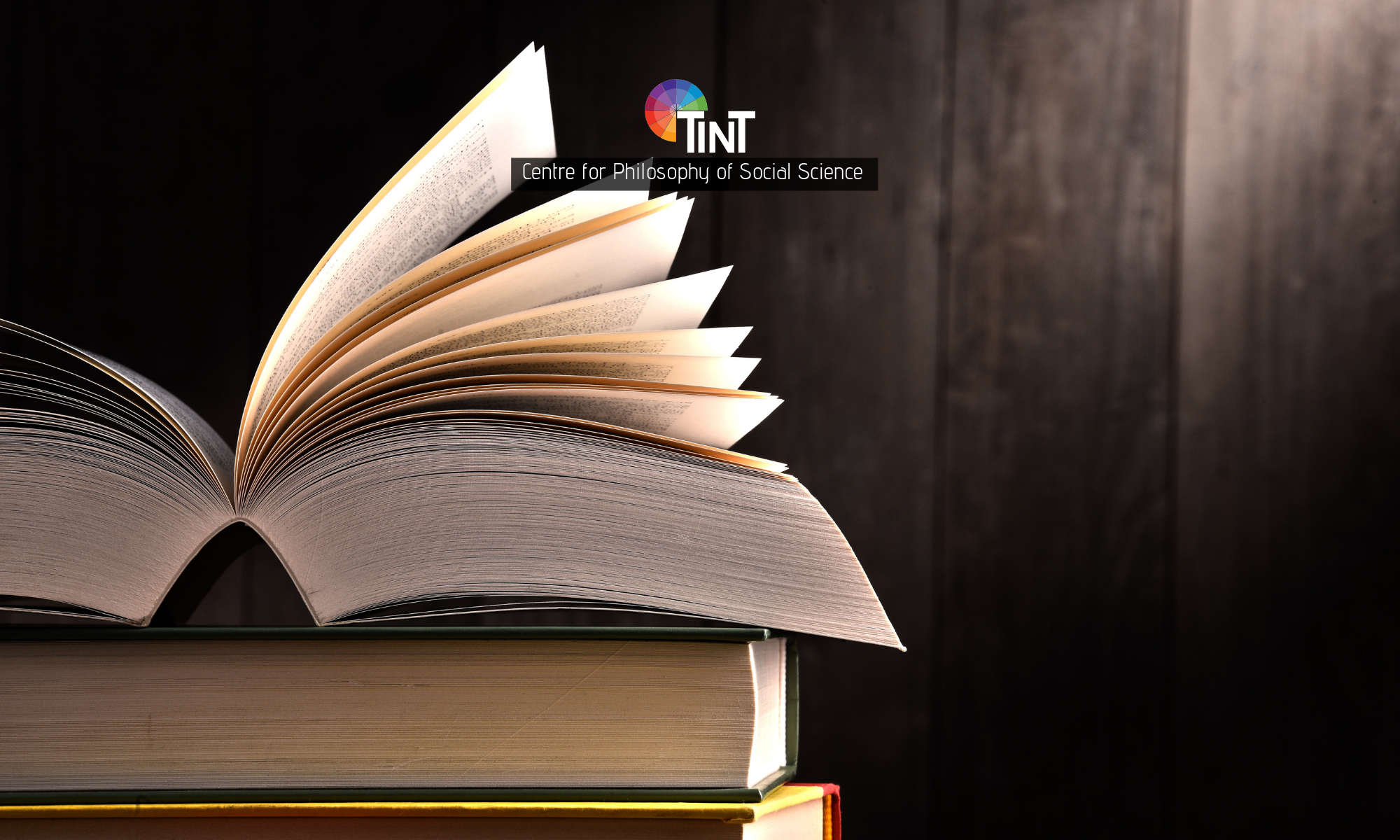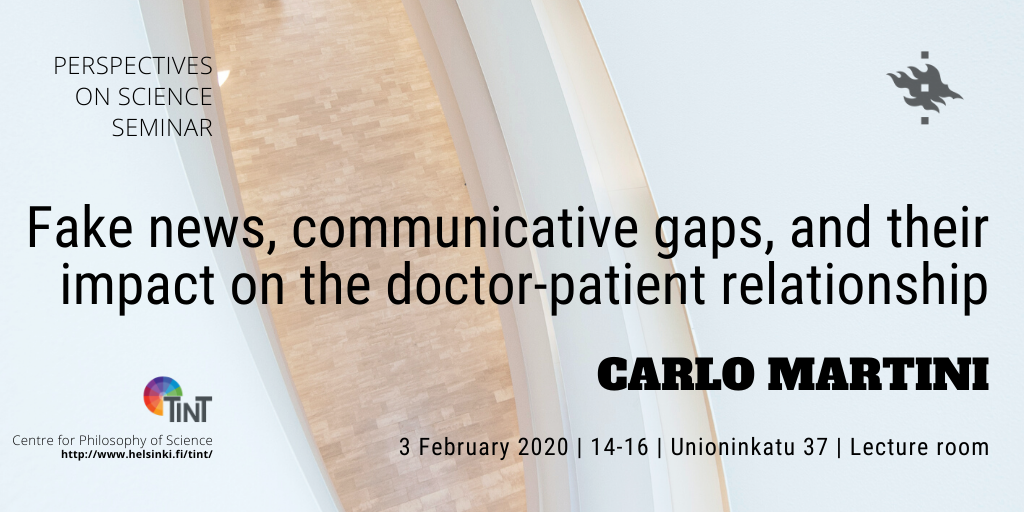At the next Perspectives on Science seminar on 3.2., Carlo Martini (TINT & Vita-Salute San Raffaele University) will give a talk entitled “Fake news, communicative gaps, and their impact on the doctor-patient relationship”.
Perspectives on Science is a weekly research seminar which brings together experts from science studies and philosophy of science. It is organized by TINT, the Centre for Philosophy of Social Science at the University of Helsinki. More information about the seminar here.
The seminar will take place on Unioninkatu 37, in the lecture room, from 2 to 4 pm.
Abstract of background paper:
Science progresses through debate and disagreement, and scientific controversies play a crucial role in the growth of scientific knowledge. But not all controversy and disagreement is progressive in science. Sometimes controversies can be “manufactured” and what looks like genuine scientific disagreement can be a distortion of science set up by non-scientific actors (e.g. interest groups). Manufactured controversies are detrimental to science because they can hinder scientific progress and eventually bias evidence-based decisions.
The first goal of this paper is to elucidate the distinction between ‘pseudo’ and ‘genuine’ scientific controversies, and to provide a qualitative methodology, based on the literature on expertise, for distinguishing between the two. We illustrate six epistemic criteria for distinguishing pseudo from genuine scientific debates in science and in medicine in particular. Controversies are quite common in medicine: often new data demonstrate that a commonly-accepted medical practice is not beneficial or even harmful to patients.

